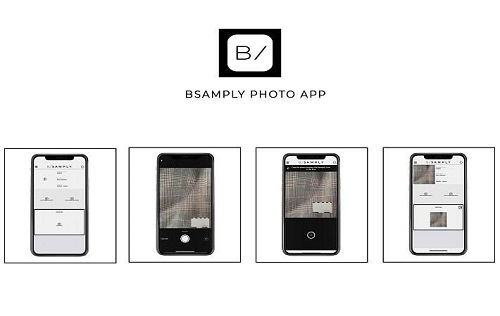FW
 Sustainability is a multi-step process, which requires technological advances, modification to processes as well as changes in the raw materials. Although, the word is sometimes treated like a fad, sustainability is actually a long-term process, and the journey to being fully sustainable can take years for brands.
Sustainability is a multi-step process, which requires technological advances, modification to processes as well as changes in the raw materials. Although, the word is sometimes treated like a fad, sustainability is actually a long-term process, and the journey to being fully sustainable can take years for brands.
With the negative impact on environment creating a global crisis, the fashion industry is taking several steps towards achieving sustainability. Nelson Jaffery, Head of Design, Liva recommends opting for sustainable cellulose based fabrics like viscose and modal, since these fabrics offer greater fluidity and sheen. Jaffery points out, sustainable fashion is often associated with boxy and rough textures and low style quotient, however, these fabrics ensure great drape and rank high on fashion quotient. Of late, many designers have collaborated and used these fabrics in their collections like Gabriella Demetraides, Gavin Miguel to name a few.
A multi-step process
Sustainability is a multi-step process, which requires technological advances, modification to processes as well as changes in the raw materials. Although, the word is sometimes treated like a fad, sustainability is actually a long-term process, and the journey to being fully sustainable can take years for brands.
the word is sometimes treated like a fad, sustainability is actually a long-term process, and the journey to being fully sustainable can take years for brands.
One important side effects of the fashion industry is water pollution. Therefore, it is important to treat water from the chemicals and dyes used for manufacturing fabrics before releasing it in the environment. Also, with technological changes and modifications in the processes, brands can reduce their water consumption.
Denim industry’s sustainable initiatives
Denim is one of the most water intensive industries and home-grown brands in India like Spykar Lifestyles are taking initiatives to make the supply chain and production processes more sustainable. The brand also strives to lower the consumption of natural resources like fuel for energy and water. The chemicals used are bio-degradable and non-hazardous. Spykar’s denims are produced in a government approved facility. All denim that Spykar rolls out are made using environmentally responsible processes right from recycled cotton, washes that require less water to technologically advance dry processes such as laser techniques. The brand uses solar power and relies heavily on latest technology like laser machines, ozone wash technology and cloud wash that has aided the brand to lower the material to liquid ratio considerably. In fact, Spykar is among the few brands that refrain from using pumice stone while washing, to not disturb the depleting pumice belt. The brand also has a fully functional water treatment plant which ensures no polluted water is released into any natural water source. The water is re-treated/purified and re-used for washing.
This World Earth Day, brands should pledge to be more conscious, more sustainable and more responsible towards the environment.
 In the world of the fashion sector which, as highlighted by the Camera della Moda, represents the second industry in the country, the Milan fashion week was one of the first events to suffer the consequences of the pandemic, followed by other events in Italy and abroad. The failure to meet supply and demand in the fashion sector closely affects both large brands and small artisan workshops, severely testing Italian excellence.
In the world of the fashion sector which, as highlighted by the Camera della Moda, represents the second industry in the country, the Milan fashion week was one of the first events to suffer the consequences of the pandemic, followed by other events in Italy and abroad. The failure to meet supply and demand in the fashion sector closely affects both large brands and small artisan workshops, severely testing Italian excellence.
To remedy this problem Bsamply, a startup founded in 2017, has created an innovative platform that allows you to participate in real online fairs, offering a 360 ° experience. Bsamply tradeshow project is much more than a market place or a simple viewing room, but a useful tool that allows suppliers with their sales network and buyers to exchange questions, answers and offers in real time via chat, show the products of the own digital stand and their specifications (composition, color ...), choose to show some products publicly to all users or privately to their customers, sample, start negotiations, conclude orders and even carry out transactions.
Not only for those canceled, the platform can also prove fundamental for the fairs that will take place regularly once the emergency has ended, acting as a bridge between those who managed to participate with their own physical stand and those who were unable to move, integrating online and offline. There are several advantages that it guarantees, including a drastic reduction in costs for travel, freight transport and stand construction. BSAMPLY offers two packages to its customers: a basic one that allows you to upload 500 articles and access from a single account and a standard one that includes technical support, uploading 1000 products and access from multiple accounts.
 As announced on 8 April, due to the worldwide spread of the coronavirus, Intertextile Shanghai Apparel Fabrics – Spring Edition and Yarn Expo Spring will merge with Intertextile Shenzhen Apparel Fabrics and Yarn Expo Shenzhen for 2020. Exhibitors from these Shanghai fairs will be able to present their spring / summer 2021, as well as a preview of autumn / winter 2021-22, collections at the corresponding Shenzhen editions instead.
As announced on 8 April, due to the worldwide spread of the coronavirus, Intertextile Shanghai Apparel Fabrics – Spring Edition and Yarn Expo Spring will merge with Intertextile Shenzhen Apparel Fabrics and Yarn Expo Shenzhen for 2020. Exhibitors from these Shanghai fairs will be able to present their spring / summer 2021, as well as a preview of autumn / winter 2021-22, collections at the corresponding Shenzhen editions instead.
Intertextile Shenzhen Apparel Fabrics will be held from 15 – 17 July 2020 at the brand-new Shenzhen World Exhibition & Convention Center. This fair is organised by Messe Frankfurt (HK) Ltd; the Sub-Council of Textile Industry (CCPIT) and the China Textile Information Centre. The fair will be held concurrently with Yarn Expo Shenzhen, CHIC and PH Value.
By providing a platform for international and Chinese industry players to communicate, Intertextile enjoys a unique proximity to these collaborative opportunities – Fila and Nike attended the 2019 edition of Intertextile Shenzhen, while H&M attended the 2019 Autumn Edition of Intertextile Shanghai.
Domestic brands sourcing at the fair in past editions included Marisfrolg, Ellassay and Kaltendin, all of which are present at the nearby Dalang Fashion Town. This is an ongoing development in Shenzhen, subsidised by the government, which aims to form a platform for garment research and development, design, brand marketing, logistics and education.
Andrew Lipsman, Principal Analyst, eMarketer
 Consumers are actually spending more on essential goods: Grocery stores saw a 26.9% increase in spending and health stores saw a 4.3% increase. This is partly because these are the only brick-and-mortar stores that are allowed to remain open right now, but it is also because consumers are worried about spending money unnecessarily with a significant recession looming on the horizon. Across the board, sectors that rely on discretionary spending have seen declines. “There is a lot of uncertainty and anxiety about the future,” says Andrew Lipsman, principal analyst at the research firm eMarketer. “People are shifting their spending to focus on the things they really need and cutting their budgets on less essential goods.”
Consumers are actually spending more on essential goods: Grocery stores saw a 26.9% increase in spending and health stores saw a 4.3% increase. This is partly because these are the only brick-and-mortar stores that are allowed to remain open right now, but it is also because consumers are worried about spending money unnecessarily with a significant recession looming on the horizon. Across the board, sectors that rely on discretionary spending have seen declines. “There is a lot of uncertainty and anxiety about the future,” says Andrew Lipsman, principal analyst at the research firm eMarketer. “People are shifting their spending to focus on the things they really need and cutting their budgets on less essential goods.”
But the coronavirus lockdown has changed our lifestyles in ways that make buying new clothes particularly irrelevant. Since people are finding ways to fill their time at home, hobby shops and bookstores have not been as badly hit, with a 23.3% decline, and home furnishings and furniture stores have seen only a 26.8% decline, perhaps because some people are spending money on making their homes more livable.
Quoted in Fast Company
Machine layout plays an important role in the spinning industry. A properly designed layout helps the spinning unit in saving space, higher productivity, less material transport which results in a significant reduction in TCO (Total cost of ownership).
Marzoli has developed a new layout which will have 10 per cent lessinvestment cost (land, building, lighting), 4 per cent less conditioning cost and 9 per cent less logistic and unskilled labor cost Marzoli spinning machines re higher in productivity and lower in power consumption, space. The major difference is in the Comber, Roving frame and Ring frame machines. The new layout of 24000 Carded spindles will save 11% space as compared to the existing layout. It will save 10 per cant space as compared to the existing layout.
Marzoli is has manufacturing experience of textile machinery for over 109 years. Marzoli is owned by the Camozzi group since 1999. Marzoli India has set up in Hosur, Tamilnadu to assemble roving frames and provide Sales & After Sales-Service.
Denim brand Rudolf Hub 1922 has launched Washless Denim which is a combination of two sophisticated and existing Rudolf Technologies: Bionic-Finish®Eco and Silverplus®. The simultaneous application of both of them to a finished garment addresses the opportunity to reduce domestic washing. Bionic-Finish®Eco is a system of macroscopic branches that attach to the fiber.
Without fluorine, it is exactly what happens in nature. Such a system leads to less frequent washing because of the protection against the accidental spill of liquids. And against the accidental droplets coming from someone talking or sneezing.
Silverplus® is a micro-structured elements coated with metallic silver. The concept is very similar to what you find in the catalytic exhaustion of cars. SILVERPLUS® controls odor-causing bacteria and it is exactly the same technology used to prevent infections in clinics and hospitals. Silverplus® keeps the microbiological charge on clothing very low without the help of washing. Washless Denim is an innovative, sustainable garment finish which allows for extended wearing time of the garment between washes.
BGMEA has revealed Western clothing brands that agreed not to cancel orders due to the epidemic are demanding price cuts of up to 50 per cent heaping economic pain on a country already reeling from the crisis. Millions of Bangladeshi households depend on the garment sector, which has been hit hard by the epidemic. Exports fell 84 per cent in the first half of April as $3 billion-worth of orders were cancelled or suspended.
Bangladesh, which ranks behind only China as a supplier of clothes to Western countries, relies on the garment industry for more than 80 per cent of its exports, with some 4,000 factories employing about 4 million people, mostly women. With Western economies struggling due to the crisis and retailers in many countries closed, brands have begun cancelling orders, though some have pledged to take delivery of already made or in production clothes. The government announced a $588 million package to help the crucial export sector pay its workers last month
LVMH, the world’s largest luxury company, gave investors their first read on the industry’s performance through the health crisis after the Paris stock market closed on Thursday. It reported a 17 per cent decline in sales for the first quarter versus the comparable period of 2019.
Revenue at its flagship fashion and leather goods division was down a better-than-expected 10 per cent. But its perfume and cosmetics unit shrank by a fifth—double the reduction seen at L’Oréal’s luxury cosmetics business, which reported the same day. LVMH slashed its dividend to save cash and cut its 2020 capital expenditure budget by 40 per cent. The two measures will save around €2.3 billion ($2.5 billion), Credit Suisse estimates.
LVMH’s sales in mainland China for big fashion brands like Louis Vuitton and Christian Dior increased by 50 per cent year over year in the first two weeks of April, as restrictions on movement were lifted. However, spending by Chinese nationals is still down across the entire portfolio.
Magdy Tolba, Chairman of the Readymade Garments Export Council of Egypt says the Central Bank of Egypt (CBE) is offering LE100 billion worth of soft loans with 5 per cent interest rate for the garment manufacturing sector. The measures announced to support companies and businesses to alleviate the crisis include real estate tax exemption for three months, paying the fees of tax statement reports over 3 installments until June 30, and removing holds on bank accounts of default investors if they pay 10 per cent of the debt.
Majority of 350-400 garment factories in Egypt are likely to be negatively affected by international brands decision to halt manufacturing worldwide. Tolba speculated that Egypt's garments exports would decline in 2020 compared to the previous year as they recorded $1.7 billion because manufacturing for international brands constitutes a large portion of the production.
Levi's, VF, Decathlon, United Colors of Benetton, and Inditex brands like Zara, Pull&Bear, Massimo Dutti, Bershka, and Stradivarius are among the top global clothing companies dealing with Egyptian factories.
Emarsys and the ccinsight.org platform stats show there is a slow but steady recovery across the Italian fashion sector from March 28. There has been a steady climb in orders by 18 per cent and a revenue increase of 13 per cent. Among the fashion items seeing a wider global uplift right now are luxury goods such as handbags and trainers, along with gloves and sportswear and these are all areas in which Italian brands excel.
However, according to ccinsight, business in the sector is still “significantly down” compared to pre-coronavirus levels. Now, as consumer confidence grows, there is a steady recovery in the Italian fashion market.
The ccinsight platform provides an anonymised, daily view of more than 1 billion engagements and 400 million transactions in more than 100 countries.












